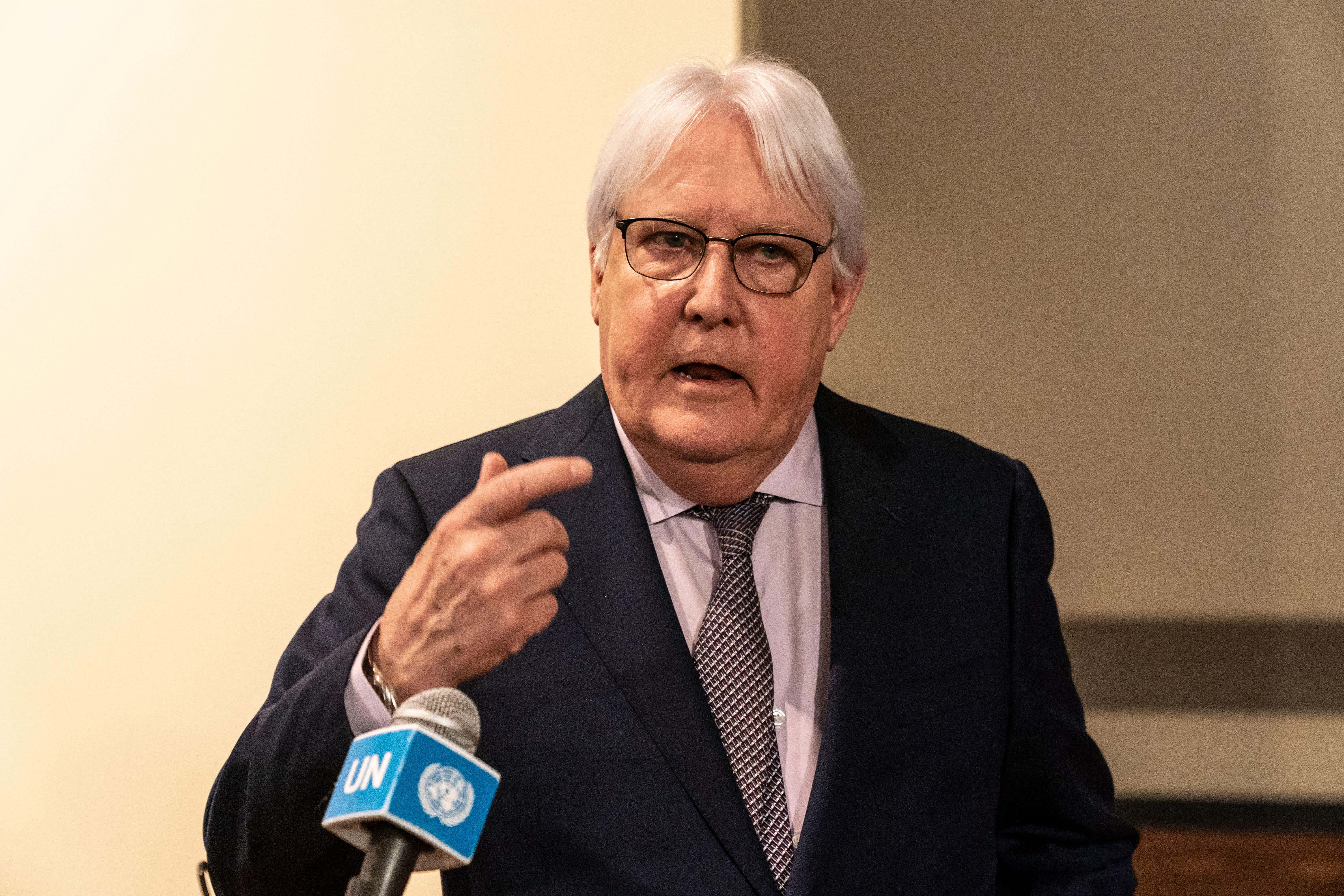UN relief chief criticises UK’s reduced overseas aid spending
Martin Griffiths said Britain should offer more money to help the world’s poorest.

Your support helps us to tell the story
From reproductive rights to climate change to Big Tech, The Independent is on the ground when the story is developing. Whether it's investigating the financials of Elon Musk's pro-Trump PAC or producing our latest documentary, 'The A Word', which shines a light on the American women fighting for reproductive rights, we know how important it is to parse out the facts from the messaging.
At such a critical moment in US history, we need reporters on the ground. Your donation allows us to keep sending journalists to speak to both sides of the story.
The Independent is trusted by Americans across the entire political spectrum. And unlike many other quality news outlets, we choose not to lock Americans out of our reporting and analysis with paywalls. We believe quality journalism should be available to everyone, paid for by those who can afford it.
Your support makes all the difference.The UK has not given enough in foreign aid, the UN relief chief said as he appealed for more funding to help the world’s most vulnerable.
Martin Griffiths said “we would like to have seen more” in overseas aid spending from Britain, stressing that “money counts”.
Rishi Sunak was criticised for slashing the foreign aid budget from 0.7% to 0.5% of national income when he was chancellor in the wake of the hit to the economy from the Covid pandemic.
It was meant to be a temporary reduction, but Chancellor Jeremy Hunt in his autumn statement ruled out a return to the higher spending target for several more years.
Mr Sunak has also overseen a redirection of overseas aid to programmes within the UK, with more now spent on housing refugees at home than on humanitarian assistance for poor developing countries.
Asked if the UK was offering enough globally and paying what it had promised, Mr Griffiths told BBC Radio 4’s World At One programme: “Well, we were promised 0.7% of course.
“That was brought down very quickly to 0.5%. And now it’s less than 0.5% if you think about it as an overseas aid budget.
“So to that extent, no, we would liked to have seen more according to those earlier promises.”
The UN’s under-secretary-general for humanitarian affairs and emergency relief co-ordinator praised Britain for providing analysis of humanitarian needs and policy issues in poor nations.
“That’s continuing and that’s terrific,” he said.
“But of course, money counts. If we can’t put money on the table for places like Somalia, Afghanistan, the Central African Republic and so forth, well, all the analysis in the world won’t make a difference.
“So we need money.”
On the funding of hosting Ukrainian refugees from the existing UK aid budget, Mr Griffiths said: “It’s true that the needs of refugees in Britain are significant, are humanitarian, should be met.
“But we would obviously prefer that that’s not taken out of the 0.5% aid budget which is already reduced from where it was before.”
The UN has launched an appeal for a record £42 billion in aid funding for next year, as climate disasters and the Ukraine war have caused humanitarian needs to soar around the world.